“Draft law No. 9055 throws the Ukrainian advocacy back to the Soviet times” – say advocates of the Volyn Oblast
The Bar Council of the Volyn Oblast held an extended meeting, involving over 180 advocates of the region, on the risks of adopting the draft law “On the Bar and Practice of Law”, submitted to the Verkhovna Rada on September 6 of this year.
The changes to the bar self-governance framework envisaged in the document are to introduce dual membership for advocates and to create regional chambers of advocates for the regions.
“Attempting to reinstate regional membership and revive oblast advocacy councils in the form of regional chambers of advocates means to throw the advocacy of Ukraine at least 25 years back to the times of the existence of Ukraine as the Ukrainian SSR - part of the USSR, and to lead to a regression in development, to the fragmentation of advocacy, the reduction of the role of the advocacy in the justice system, thus to a regression in protection of human rights and fundamental freedoms”, - as mentioned in the final statement of the RBC.
The statement stresses that the experience of the regional membership in Ukraine already exists. Until 1992, Ukrainian advocates were in organizations with mandatory membership - in oblast bar associations. The structure of the bodies of these associations was, in fact, the same as proposed in accordance with the new draft law. The association was a legal entity.
The Head governed the association. In addition, there was a presidium of the association - a collegiate body (in the form of a regional bar council), a certification and audit commissions. All these association bodies did not have the status of a legal entity and were completely dependent on one person - the Head of the association. Each regional bar association was a separate “principality” with its traditions, laws, and a high degree of dependence of the organization on one person.
“Unfortunately, the new draft law on Practice of Law is not based on the tendency to strengthen the institute of advocacy in the system of justice and, accordingly, the whole system, but, on the contrary, on the tendency of its destruction” – reads the statement of Volyn advocates.
In their opinion, the submission of a draft law of such content is an attempt to divert the advocacy from its main task, as defined by the Constitution of Ukraine, - the provision of professional legal assistance; and to engage in a continuous election process for the formation of self-governing bodies of advocacy.
Draft law No. 9055 contains threats of the destruction of the institutional guarantee of the bar independence – the bar self-governance and self-regulation of the profession through detailed regulation of the process of electing the bodies of the bar self-government, their activities and financial support.
Significant drawbacks of this draft law are the countless threats of corruption: on the stages of admission to the profession; in the order of bringing advocates to the disciplinary responsibility; in the order of appealing to the decisions of the qualification and disciplinary commissions; in the powers of the chairman and chairmen of the disciplinary and qualification commissions, who do not bear the disciplinary responsibility for acts or omissions in connection with performance of their duties as officials of the bodies of bar self-government.
Draft Law No. 9055 carries the risks of narrowing the advocate’s professional rights and guarantees of the practice of law; does not contribute to further approximation of advocacy to the European standards.
Instead, this draft law contains many norms that actually legitimize the possibility of pressure on an advocate in connection with his professional activities by limiting the professional rights and guarantees of the practice of law; extending the advocates’ duties; introducing the concept of “abuse of law”, the expansion of the list of disciplinary penalties and the range of persons who can file complaints on the actions of an advocate, detailing the order of bringing to disciplinary liability.
In addition, according to the draft law, regional self-government bodies are deprived of the basic functions of protecting the professional rights and interests of advocates of the region, of ensuring the observance of the advocacy guarantees in the region.
Draft law No. 9055 provides for a grace period for admission to the advocacy of prosecutors and judges, and, in fact, for four years from the date of entry into force of this draft law, all other jurists (lawyers, legal advisers, other persons in similar positions, investigators, notaries, assistant judges, assistants of notaries, pedagogical or scientific-pedagogical workers, scientific workers) without passing internship and work experience as a lawyer’s assistant (trainee). However, most of them are not familiar with procedural standards, they do not have an understanding of ethical standards, the priority of client interests and the protection of human rights, which, of course, will not contribute to the provision of quality legal assistance and the administration of justice.
At the same time, the draft law contains many restrictions on the rights of persons wishing to obtain the status of an advocate, that is, the admission to the profession is hampered. The different two-level system of qualification exam administering bodies is offered, as well as much longer time period for exam preparation and the decision to issue a certificate. According to this draft law, the qualification exams are carried out by the Higher Qualification Commission of the Bar (the “HQCB”) at least once every three months. After that, the HQCB must decide on the positive or negative result of the qualification exam. Since the law does not provide for deadlines for making decisions on the results of the exam and the issuance of the relevant certificate, this process can be delayed for many years, which inevitably leads to the creation of queues for the examination of persons who wish to engage in advocates’ activities.
In addition, given the HQCB is making decisions once a month, the uncertainty in the timing of rendering decision on the results of the qualification exam, appealing decisions on passing of the exam to the same HQCB will inevitably lead to corruption risks.
Advocates of Volyn call for prevention of the destruction of the institute of advocacy and make their proposals to the current special law.
Popular news

Discussion
Why lowering the age of marriage lacks legal logic
Although until 2012 there was a provision in family law that allowed children to marry from the age of 14 under certain circumstances, its return to Ukrainian law would contradict international obligations and the logic of criminal law.

Self-government
A report on Ukrainian advocacy was presented in the European Parliament
Can a shadow report on advocacy replace the political framework of the Roadmap on the rule of law with demands for the restructuring of self-government? Where is the line between accountability and the seizure of institutions? And how can we respond to narratives with data rather than impressions?

Guarantees of the practice of law
Proceedings opened following attack on advocate in Dnipro
The Committee for the protection of advocates' rights and guarantees of legal practice of the UNBA appealed to law enforcement agencies in connection with an advocate's report of an attack while performing his professional duties. The information was entered into the Unified Register of Pre-trial Investigations and a pre-trial investigation was initiated.
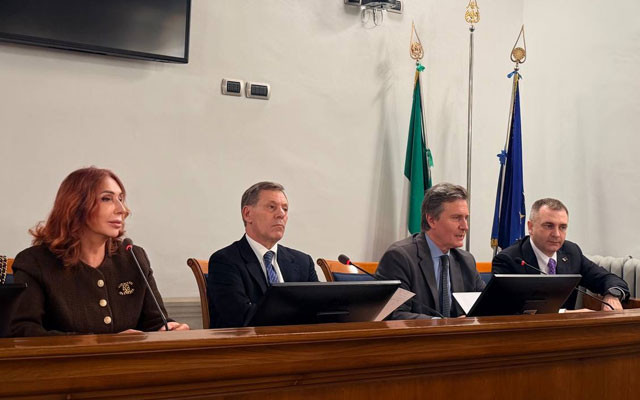
Interaction
«With us — to Europe»: Italian advocacy supports UNBA initiatives
On January 30, a meeting was held in Rome between a delegation from the Ukrainian National Bar Association and the National Bar Council of Italy (Consiglio Nazionale Forense, CNF) on the standards and practices of the legal profession and their significance for Ukraine's European integration process.
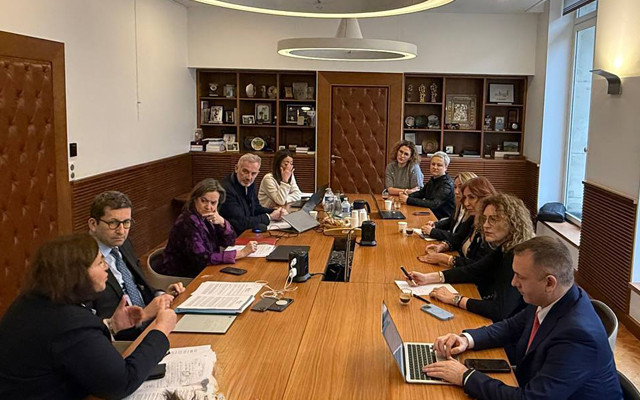
Interaction
France confirms cooperation with UNBA on reforms in the field of the rule of law
On January 29, a working meeting between representatives of the Ukrainian National Bar Association and the French National Bar Council (Conseil National des Barreaux, CNB) took place in Paris.
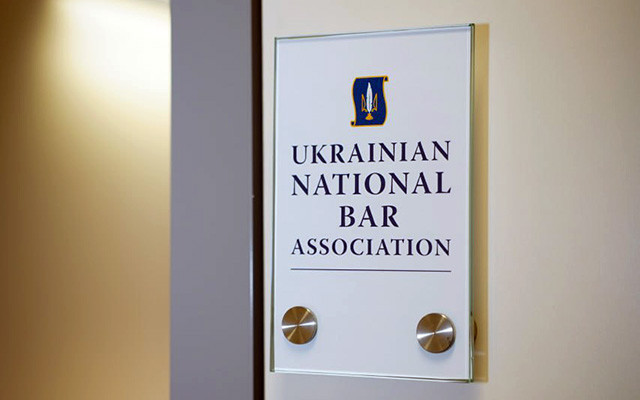
Abroad
UNBA office opens in EU capital
To strengthen the institutional presence of the Ukrainian advocacy community at the European level, an office of the Ukrainian National Bar Association has been opened in Brussels (Belgium), which will serve as a permanent platform for dialogue with European partners.
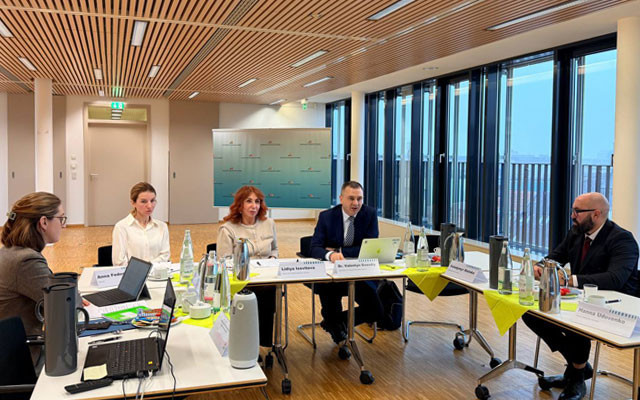
Interaction
UNBA and BRAK discussed European integration priorities and regulation of the profession
On January 26, a meeting was held between representatives of the Ukrainian National Bar Association and the German Federal Bar Association (Bundesrechtsanwaltskammer, BRAK).
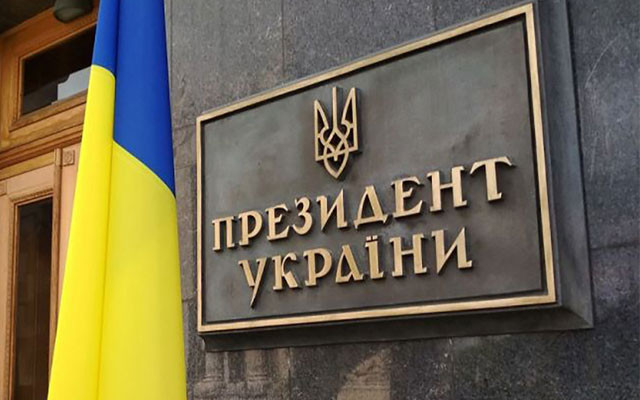
Guarantees of the practice of law
The President was urged to sign the law on strengthening guarantees for advocacy activities
The professional community of advocates called on Ukrainian President Volodymyr Zelenskyy to sign Law No. 4547-IX, which strengthens guarantees for advocates' activities, in particular by introducing liability for identifying an advocate with a client.
Publications

Volodymyr Matsko Extradition as a systemic form of rights violations

Victoria Yakusha, Law and Business The anti-corruption vertical cannot «take care» of the Bar as an institution, - acting head of the HQDCB

Censor.net Protecting advocates – protecting justice: addressing concerns about the new law

Ihor Kolesnykov A BRIEF SUMMARY REGARDING THE APPLICATION OF THE ORDER ON EXTENDED CONFISCATION IN LATVIA REGARDING FINANCIAL ASSETS OF…

Valentyn Gvozdiy WORKING IN A WAR ZONE

Lydia Izovitova Formula of perfection

Sergiy Vylkov Our judicial system is so built that courts do not trust advocates

Iryna Vasylyk Advocacy in the proclamation of Independence of Ukraine
